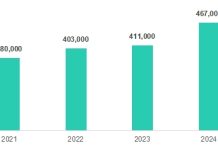
As confidence in Malaysia’s economy strengthens, businesses that commit to global governance standards and world-class risk management practices will enhance the country’s competitiveness.
Malaysia, currently ranked fifth among 12 Asia-Pacific markets in the Corporate Governance Watch 2023 report, has the opportunity to improve its standing as companies begin adopting the updated Global Internal Audit Standards, set to take effect on January 9, 2025.
The refreshed Global Standards, which include 15 guiding principles, offer a framework for Board members, management, and internal auditors to collaborate as transformation partners in addressing emerging threats and seizing new opportunities.
These standards also provide statutory bodies with the guidance necessary to align with international best practices, enhancing governance in key areas such as Environmental, Social, and Governance (ESG), cybersecurity, and more.
“With increasing complexities and vulnerabilities, enterprises aiming to uphold integrity, transparency, and trust must future-proof their governance—a critical function in building business value and resilience,” said Mohd Khaidzir Shahari, President of The Institute of Internal Auditors Malaysia (IIAM), at the opening of the IIAM’s two-day National Conference.
He echoed sentiments from Lim Hui Ying, Deputy Finance Minister II, who highlighted the essential role of internal auditors in ensuring that organizations remain ethical and sustainable. Internal auditors are also instrumental in designing adaptable governance frameworks that can navigate the complexities of the digital age, cybersecurity threats, and sustainability challenges.
Since 2008, Malaysia has required public listed companies to establish internal auditing functions to enhance corporate governance transparency. However, adherence to global Internal Audit standards remains voluntary, leaving some organizations vulnerable to risks and missed opportunities.
Khaidzir emphasized that the new Global Standards establish minimum requirements for internal audit, applicable across commercial and public sectors, regardless of organization size.
“Consistency in applying these standards would elevate the profession, fostering trust, reliability, and confidence in the work of internal auditors worldwide. A universal commitment to these standards would solidify internal auditing as an indispensable asset to the business community.”
With over 1,000 companies listed on Bursa Malaysia and a strong pipeline of upcoming listings, the demand for qualified internal auditors has never been greater. Currently, Malaysia has 827 certified internal auditors. To address the growing need for skilled practitioners, IIAM offers more than 90 workshops, conferences, and certification programs each year, including its annual National Conference, the largest gathering of internal auditors in Malaysia, attracting over 800 delegates.
This year’s conference tackled pressing issues like ESG standards, cybersecurity resilience, technology and AI integration, and fraud detection, offering participants valuable insights into how these factors will shape the evolving role of internal audit.
“IIAM remains dedicated to capacity building, promoting technology integration in audit processes, and helping auditors become trusted advisors within their organizations,” Khaidzir said.
He urged internal auditors to go beyond assessing compliance and controls and position themselves as strategic business partners. “The future of internal audit holds immense potential, but it also requires us to rethink our approach, drive meaningful change, and be key contributors to the success of the businesses we serve.”
Over the past year, IIAM has advanced the internal audit profession through increased collaboration with professional bodies, regulators, and policymakers, while expanding its presence in East Malaysia to foster a robust internal auditing culture. Notably, IIAM has certified over 95 internal auditors with its globally recognized Certificate in ESG.
Looking ahead, IIAM plans to roll out more readiness programs, deepen collaborations with regulatory and professional bodies, and elevate the profile of the internal audit profession in Malaysia.














